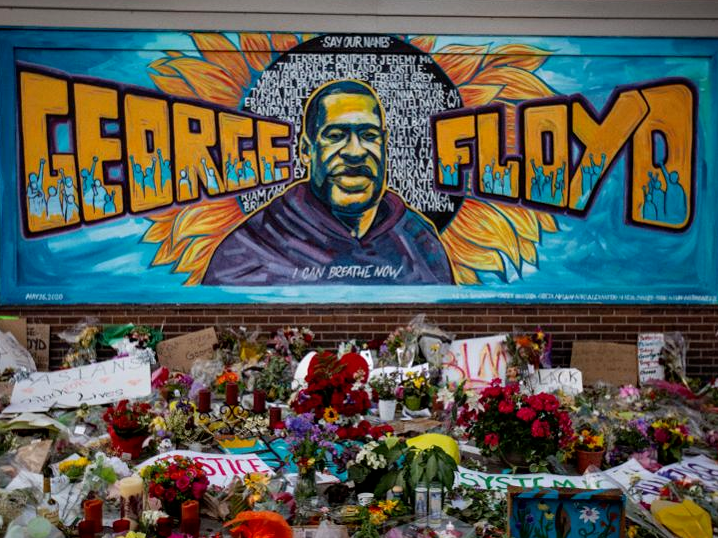Dear Epiphany,
From the early days of the stay-at-home order, I have been referring to this time of COVID-19 as the Great Timeout. The name came, of course, from my experience as a parent, sending my children to timeout to consider what they had done, and not come out until they were ready to apologize and make amends. I am sure many of you know the drill. And so, in my imagination, and indeed my prayers, I wondered: is this nationwide stay-at-home order a collective timeout for America? What would God be calling us to admit that we’ve done, express regret for, and then seek reconciliation about? If the answer was not clear two weeks ago, it is crystal clear, to me, today: the sin of racism and the history of slavery at its core.
In 1968, President Lyndon Johnson commissioned a report to help understand and then resolve the racial tensions in America. A bipartisan congressional committee was formed called the Kerner Commission. When they published their report, it concluded that the United States was moving toward two societies, one black and one white – separate and unequal. And this growing segregation and inequality was fueling the unrest the nation was experiencing at the time (see this op/ed for more context). I was 1 year old when this was written. Some things have changed for BIPOC (Black/Indigenous People of Color) in America, but too much has not.
Under the stay-at-home order, as we sat in our houses watching TV, suddenly the horror of the senseless murder of George Floyd, an African American man, was streamed into all our living-rooms. Suddenly, we had a common image to contemplate as we sat in timeout. And then, as we condemned and judged the murderer of Mr. Floyd, we were given another image to consider, one not cloaked in a police uniform — one that looked more like you and me, or like friends or colleagues or neighbors of ours… Amy Cooper, as she threatened Christian Cooper (no relation) in Central Park because he asked her to leash her dog. “I’m going to call the police and tell them an African American man is threatening my life.” The next day, Amy made the rounds on the talk shows claiming not to be a racist. But what we witnessed in that video is the 400-year old narrative of racism unveiled in just over 60 seconds.
I am not Amy Cooper, but I have benefited mightily from the 400 years of institutionalized racism chiseled into white-centric America. Never would a police officer put a knee to my neck. That would never happen, and I know it, and the police know it. There is not a BIPOC man in America who could say the same. Not a BIPOC CEO. Not a BIPOC policeman. Not a BIPOC president of a university. Not a BIPOC General. Not a BIPOC Senator or Congressman. Not a BIPOC celebrity or pro-athlete. Not a BIPOC priest. Why is that? That is the question we are called to answer before we come out of this Great Timeout.
Indeed, as a nation, we have been confronted by this issue before… 52 years ago, the Kerner Report was written, and it could be re-released today, as if it were new, with the same accuracy and relevance. The difference, I pray, is our collective experience of angst, anguish, and suffering because of COVID-19. My hope (and I believe is God’s intention) is that the common suffering this virus put upon us calls us to experience the common suffering through the sin of George Floyd’s murder and the lies of Amy Cooper. My hope and prayer is that witnessing these sins leads to the fundamental recalibration of justice in this country.
I can give you a very long list of structural changes that need to take place, from healthcare to education to policing, but as the Rector of Epiphany, I want us to maximize our particular role in this systemic need for reconciliation by reminding you and re-reminding you that God did not design Creation to accommodate racism at all! God hates racism! God created all people equally. God loves all people, and Jesus came to reveal this to the world. Just as we come to church to remember Jesus, we come to church to remember this message of love and equality. And if love and equality are core, then justice for all must be our #1 priority.
Our role at Epiphany is to be the place you come to practice the love of God and to encourage one another to practice it in our homes, and at work, and in the ballot box, and on the streets. Love is from God, and so, justice for all must be remembered, nurtured, and attained. It is possible, because it is God’s will!
Doyt+


